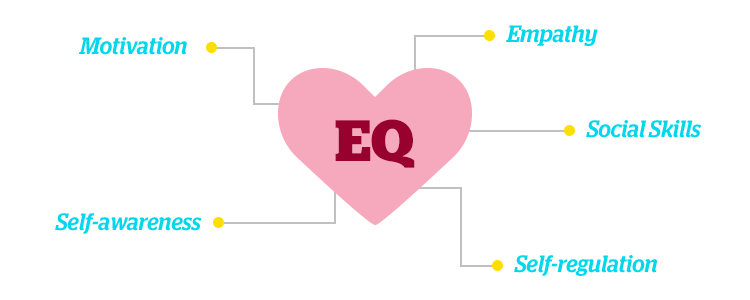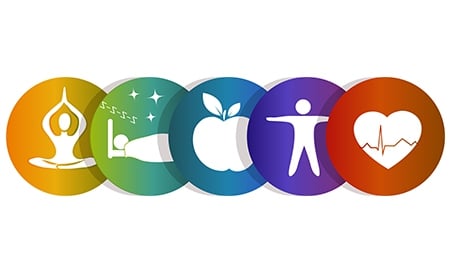
Emotional Intelligence Skills involve brain fitness? According to Simon Evans, Ph.D. and Paul Burghardt, Ph.D., the answer is yes, and here is what they say. "1. Emotional Intelligence (EQ). Your brain controls your mood and your ability to handle stress and respond to challenges. It controls your ability to read the emotions of others and respond appropriately. Your emotional intelligence, or EQ, is the aspect of brain fitness that has a large impact on your self confidence, day to day mood and success in social environments, including career and family life.
For the most part, a system in your brain called your cortico-limbic system is responsible for controlling your emotional intelligence, and like most systems in your brain, you can improve it with specific focus."
First Emotional Intelligence Skill
So if we follow the Evans and Burghardt line of thought, the first emotional intelligence skill to work on is taking care of your brain.
That involves keeping your brain rested, fed, exercised, relaxed, and yet challenged with novel learning experiences.
|
New neurons, according to my reading of the research, routinely end up at the hippocampus, which is part of the cortico-limbic system mentioned by Evans and Burghardt above.
There is lots of information in their book, Brainfit for Life, about the how to's of nutrition, sleep, and physical exercise, and there is an excellent discussion of what novel learning experiences can be.
Emotional Intelligence Happens Internally and Externally
Once the brain is fit, now we can begin to discuss the discreet skills of emotional intelligence.
Once again, I must work inside me first, with self-talk.
As a domestic violence educator, I work with folks who are not committed to emotional intelligence, or they do not know how to to emotional intelligence, and I teach first, basic self-talk skills.
When I am heading into group, and I have done thousands of them, I need to reaffirm, with self-talk, inside my head, that I am going to listen respectfully, even though I have no idea how I will be spoken to. I suggest to my clients that they do the same, make some self-talk committments to themselves.
When I am going home, I need to make another mental commitment to myself to listen to my wife, who will want to talk about her day and our children and her plans for flower beds and the deck, ect.
I know that I do not need to agree or disagree with anything she says, I just need to listen, which is a skill with discrete steps, and is very learnable.
When I listen, I give the Gift of Attention, which leaves my wife, and the people I listened to feeling a bit of contentment.
Remember, you do not need to agree or disagree, just listen, maybe even turn your head to the side and give them your ear.
When I make that internal statement to myself that I will listen, I feel calm, and that calmness impacts the speaker, who may be very loud, which simply means they want to be heard.
So the first emotional intelligence skill is to say to yourself, fairly frequently, and this will be quick, I am going to practice emotional intelligence skills, like listenting.
Why do you need to do that frequently? Because the human orienting response will pull you away quickly. We are hard wired to respond to movement in the environment, and when I look towards the window where there was just a flash of light, I may forget the commitment I had made and join in the argument because my very healthy brain processes data at the rate of 7 bits every 1/18th second.
It changes thoughts fast.
The next emotional intelligence skill I need to attend to is managing my own feelings.
That involves awareness that thoughts change feelings, so if I am experiencing an unpleasant feeling I need to change the thought to change the feeling, or take a deep breath, or do my heart rate variability biofeedback.
Again we are working in the personal aspects of emotional intelligence, so that I can operate effectively, cooperatively and affiliativly, in the external relationship.
It is my belief, that emotional intelligence skills happen inside me first, and need to be managed at the rate of my Central Nervous System and that is a very fast management.
I want to establish a FLOW experience in my relationships, but that FLOW happens inside me.

CREATIVE WRITING


